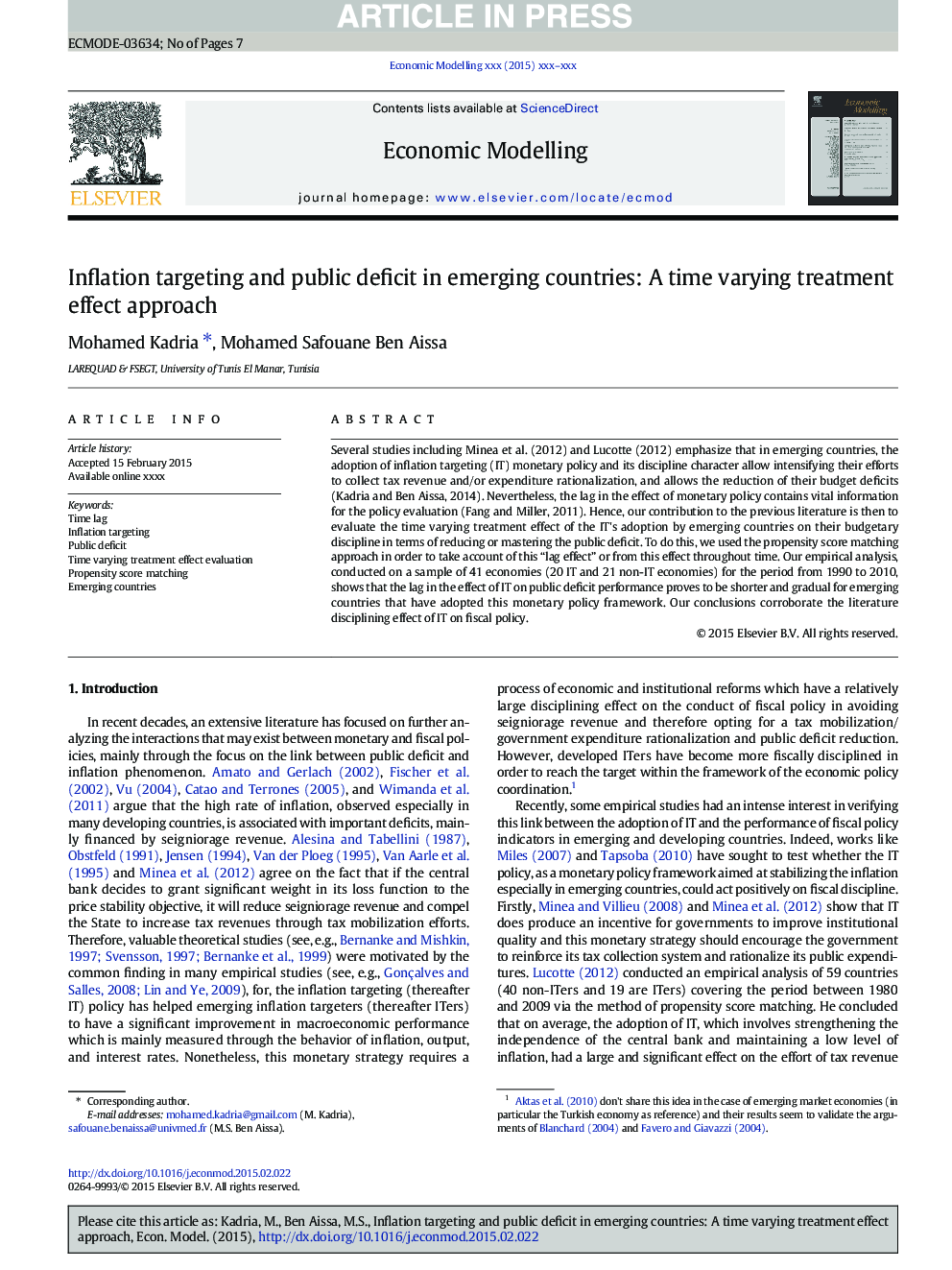| Article ID | Journal | Published Year | Pages | File Type |
|---|---|---|---|---|
| 5053527 | Economic Modelling | 2016 | 7 Pages |
Abstract
Several studies including Minea et al. (2012) and Lucotte (2012) emphasize that in emerging countries, the adoption of inflation targeting (IT) monetary policy and its discipline character allow intensifying their efforts to collect tax revenue and/or expenditure rationalization, and allows the reduction of their budget deficits (Kadria and Ben Aissa, 2014). Nevertheless, the lag in the effect of monetary policy contains vital information for the policy evaluation (Fang and Miller, 2011). Hence, our contribution to the previous literature is then to evaluate the time varying treatment effect of the IT's adoption by emerging countries on their budgetary discipline in terms of reducing or mastering the public deficit. To do this, we used the propensity score matching approach in order to take account of this “lag effect” or from this effect throughout time. Our empirical analysis, conducted on a sample of 41 economies (20 IT and 21 non-IT economies) for the period from 1990 to 2010, shows that the lag in the effect of IT on public deficit performance proves to be shorter and gradual for emerging countries that have adopted this monetary policy framework. Our conclusions corroborate the literature disciplining effect of IT on fiscal policy.
Related Topics
Social Sciences and Humanities
Economics, Econometrics and Finance
Economics and Econometrics
Authors
Mohamed Kadria, Mohamed Safouane Ben Aissa,
